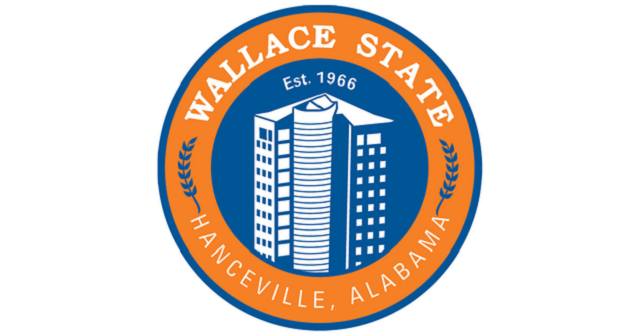HANCEVILLE, Ala. – Three health programs at Wallace State Community College are making changes to expand their offerings or altering the curriculum to offer students more options to enter the workforce, to specialize in specific areas in their chosen field or to decrease the time they need to finish their degree.
The Medical Laboratory Technician program now offers a Medical Laboratory Assistant (MLA) certificate program, with classes starting this summer and completion in less than two semesters. MLAs perform lab tests that help detect, diagnose and study diseases. The program will teach students core laboratory skills primarily required for testing in physician’s office labs, urgent care facilities and other decentralized testing sites.
During the summer semester, MLA students will take two mini term courses designed for entry-level students who are ready to begin a career in laboratory technology. The fall semester mini term will consist of a clinical practicum portion, putting to use in a clinical setting what they learned the previous semester.
Successful students who wish to advance toward an Associate in Applied Science in Medical Laboratory Technician can waive the MLT 131 course requirement upon acceptance to the program.
Interested students should apply to the program by visiting the Medical Laboratory Technician page at www.wallacestate.edu. Applications will be accepted starting March 1, with no pre-requisites required. A background check, drug screening and physical are required.
For more information, contact MLT Program Director Chris Cleghorn at 256-352-8347 or chris.cleghorn@wallacestate.edu.
The Diagnostic Medical Sonography (DMS) program is adding a Cardiovascular option to its associate degree program. The Cardiovascular option will prepare students as entry-level cardiac and vascular sonographers. With the addition, the DMS program will now have two associate degree options, with the General option geared toward obstetric and abdominal registries. Between the two options, the program will accept 50 students each fall, with 30 in the General option and 20 in the Cardiovascular option.
April Sutherland, director of the Wallace State DMS program said there is a huge need in the medical community for trained cardiovascular sonographers. She said over the last couple of years calls have increased from employers seeking recent graduates who are registered in cardiovascular sonography.
With the new program, Sutherland said students completing the Cardiovascular option will be more knowledgeable, will be exposed to more pathologies during clinical rotations specific to cardiovascular care, and they’ll be prepared to take their cardiac and vascular registries, as opposed to obstetric and abdominal registries for General option students.
Registered sonographers who wish to enroll in the Cardiovascular option should be able to exempt some of the classes based on their current registries, cutting down on the number of classes they would need to complete the new associate degree. Credential sonographers will also receive two points in their ranking score during the application process. Applications will be accepted from March 1 to June 1 for Fall 2019.
For more information about the DMS program, contact April Sutherland at 256-352-8318 or april.sutherland@wallacestate.edu.
Starting in Fall 2019, the Diagnostic Imaging program is adjusting its curriculum to allow students to complete the program in four semesters rather than five. Students entering the program will need to complete two semesters of pre-requisite courses before applying to the program, for a total of six semesters overall. Previously, students took some of those courses as co-requisites, necessitating the fifth semester to complete the Diagnostic Imaging program and bringing the total semesters of pre-requisite and program-specific courses to seven.
Requiring all of the pre-requisites to be completed before applying to the program and keeping the Diagnostic Imaging classes to four semesters not only decreases the time frame in which students can complete the program, it also increases the number of credit hours within each semester. That will help students on financial aid, who need a certain number of hours to maintain full benefits each semester.
Wallace State’s program will be the only program in the state to offer completion in four semesters. Applications will be taken from March 1 to June 1 for Fall 2019.
For more information about the Diagnostic Imaging program or questions about pre-requisites, contact Jim Malone at 256-352-8309 or james.malone@wallacestate.edu.
For more information about Wallace State’s health programs, visit www.wallacestate.edu



























